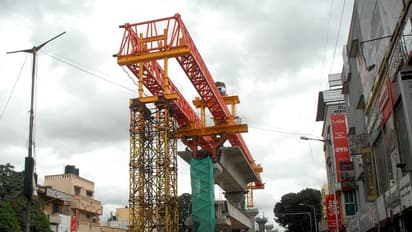Bengaluru: Survey for Namma Metro Phase 3 to conclude by year end

Synopsis
Bengaluru's Namma Metro is gearing up for Phase III expansion, set to commence in late 2024 or early 2025. The Bengaluru Metro Rail Corporation (BMRCL) is initiating a crucial Geotechnical Investigation to analyze soil stability and geological factors along proposed routes, ensuring safe construction. Innovative approaches like the double-decker model are being explored for enhanced efficiency.
With plans in full swing, Bengaluru's Namma Metro is preparing for its ambitious Phase III expansion. The goal is to connect more areas across the city, promising enhanced connectivity and easing commuting challenges for residents. The commencement of this next phase is expected towards the end of 2024 or early 2025.
The Bengaluru Metro Rail Corporation (BMRCL) is leaving no stone unturned in its preparations, with a crucial step being the upcoming Geotechnical Investigation. This survey aims to provide vital insights into the geological makeup of the terrain along the proposed metro routes, essential for the safe and efficient construction of the metro infrastructure.
Expected to commence next week, the Geotechnical Investigation tender, valued at approximately ₹6 crore, will delve deep into the ground to analyze soil stability, rock formations, and other geological factors. By understanding the nature of the land where the metro pillars will stand, engineers can determine the depth and design of foundations needed, ensuring the structural integrity of the metro network.
Yashwant Chauhan, Chief Public Relations Officer of BMRCL, highlighted the significance of this survey, emphasizing its role in guiding the construction process. "By drilling into the ground at various points along the route, we can assess the suitability of the land for metro infrastructure," he explained. Additionally, the topography of future station sites will undergo a thorough examination to inform construction plans effectively.
Also, BMRCL is exploring innovative approaches to metro design, including the double-decker model successfully implemented in the Electronic City route. Feasibility studies have been conducted, and tender evaluations are underway to potentially replicate this model in Phase III, promising enhanced efficiency and space utilization.
Stay updated with the Breaking News Today and Latest News from across India and around the world. Get real-time updates, in-depth analysis, and comprehensive coverage of India News, World News, Indian Defence News, Kerala News, and Karnataka News. From politics to current affairs, follow every major story as it unfolds. Download the Asianet News Official App from the Android Play Store and iPhone App Store for accurate and timely news updates anytime, anywhere.